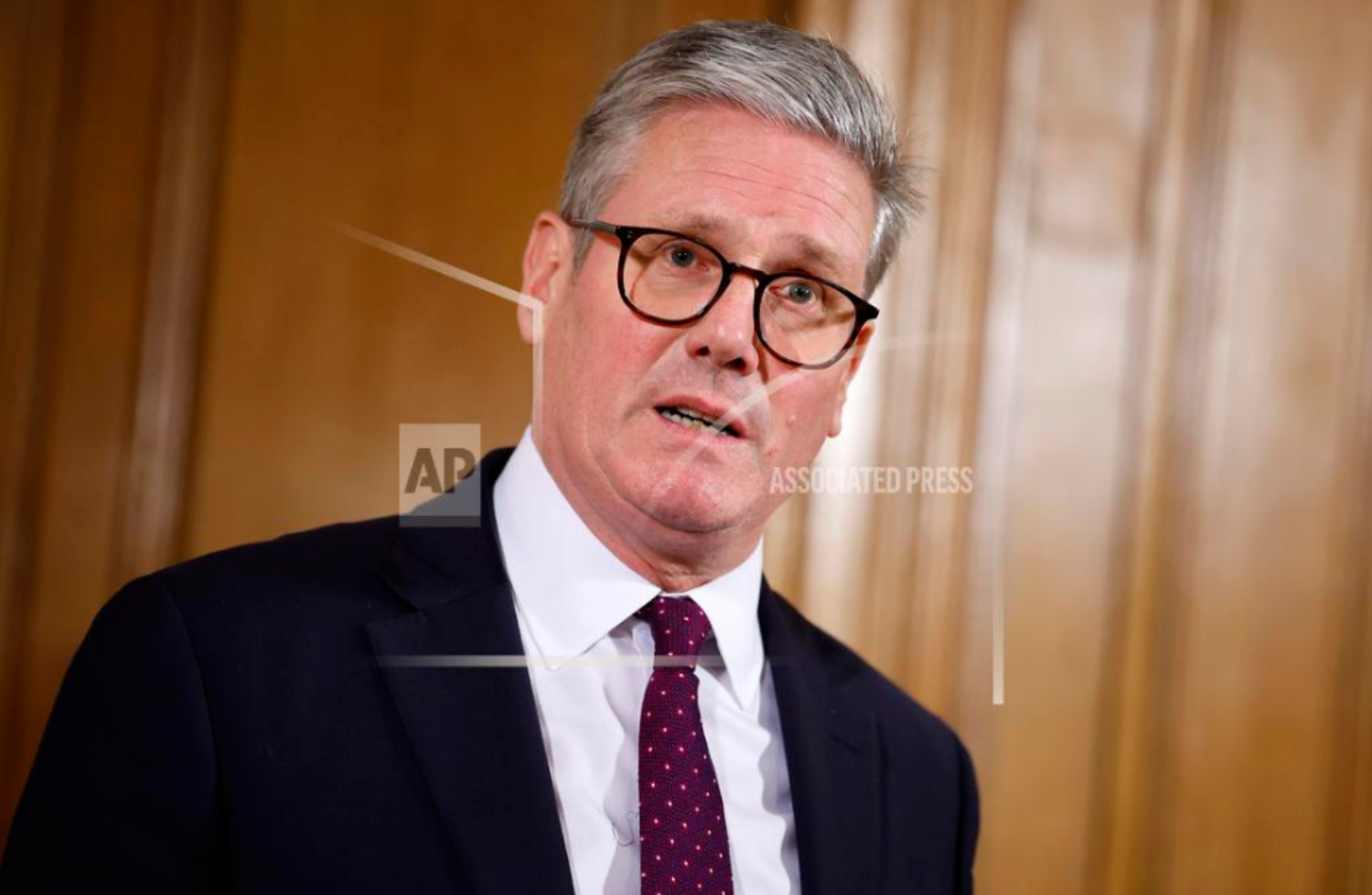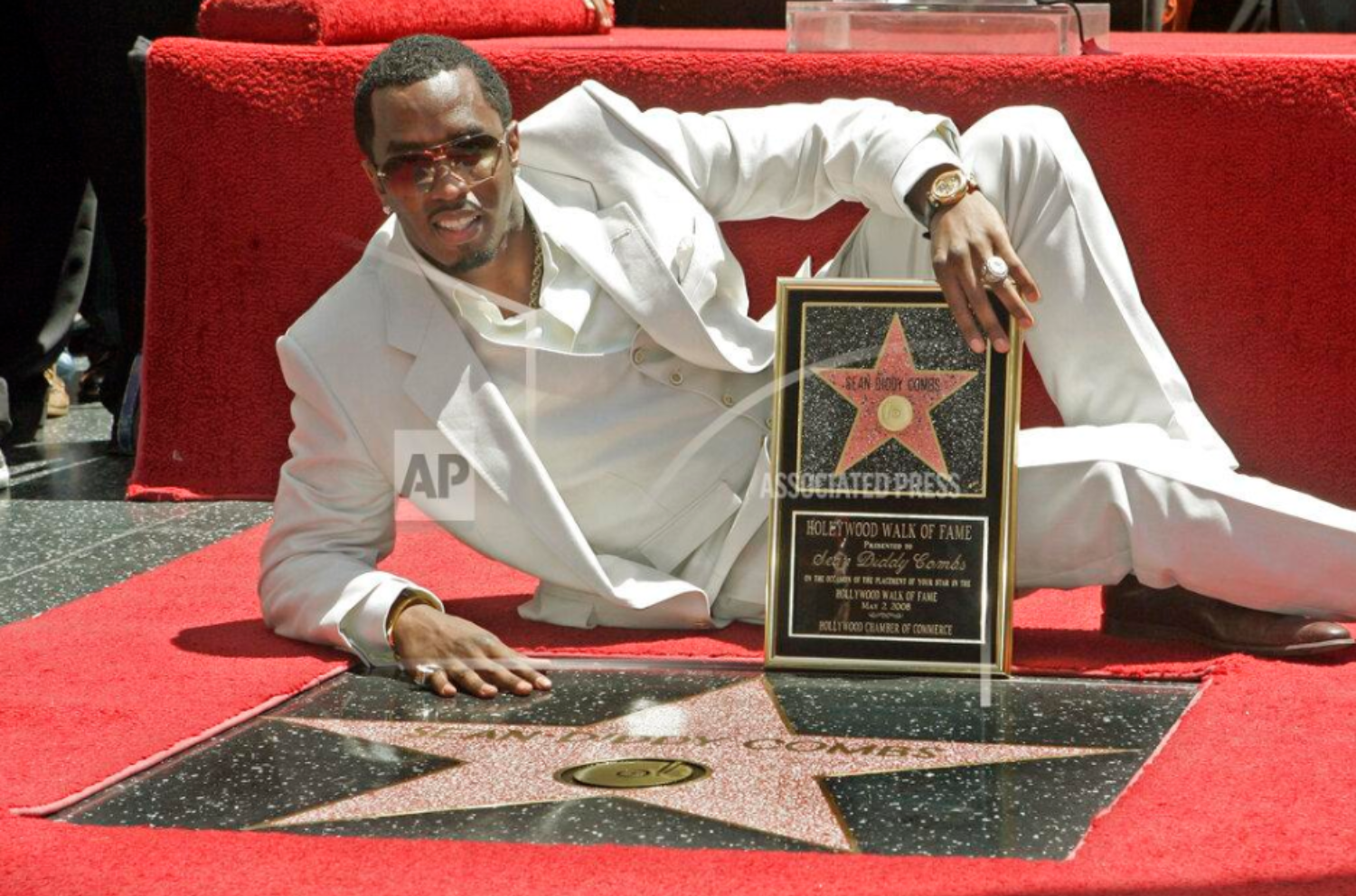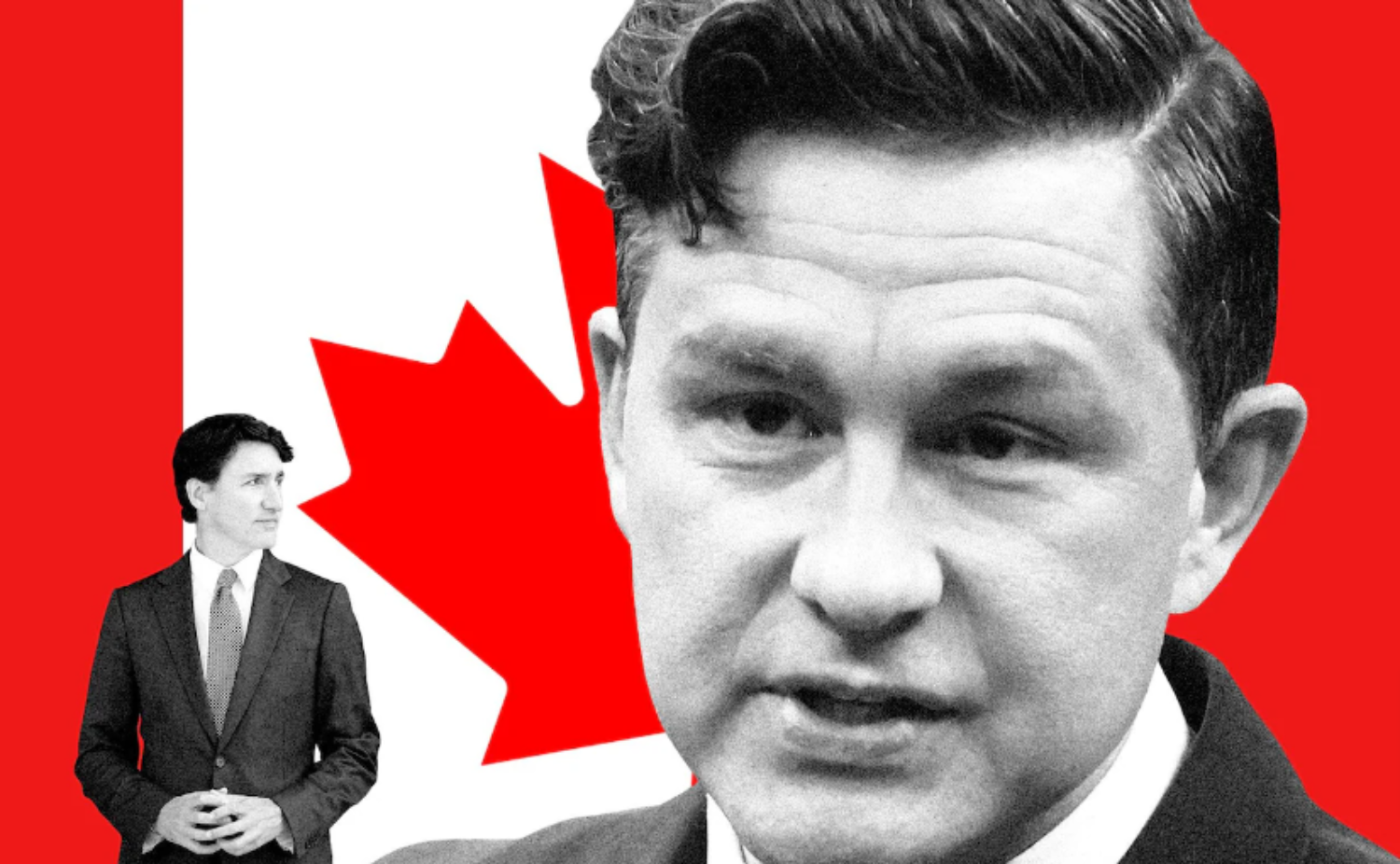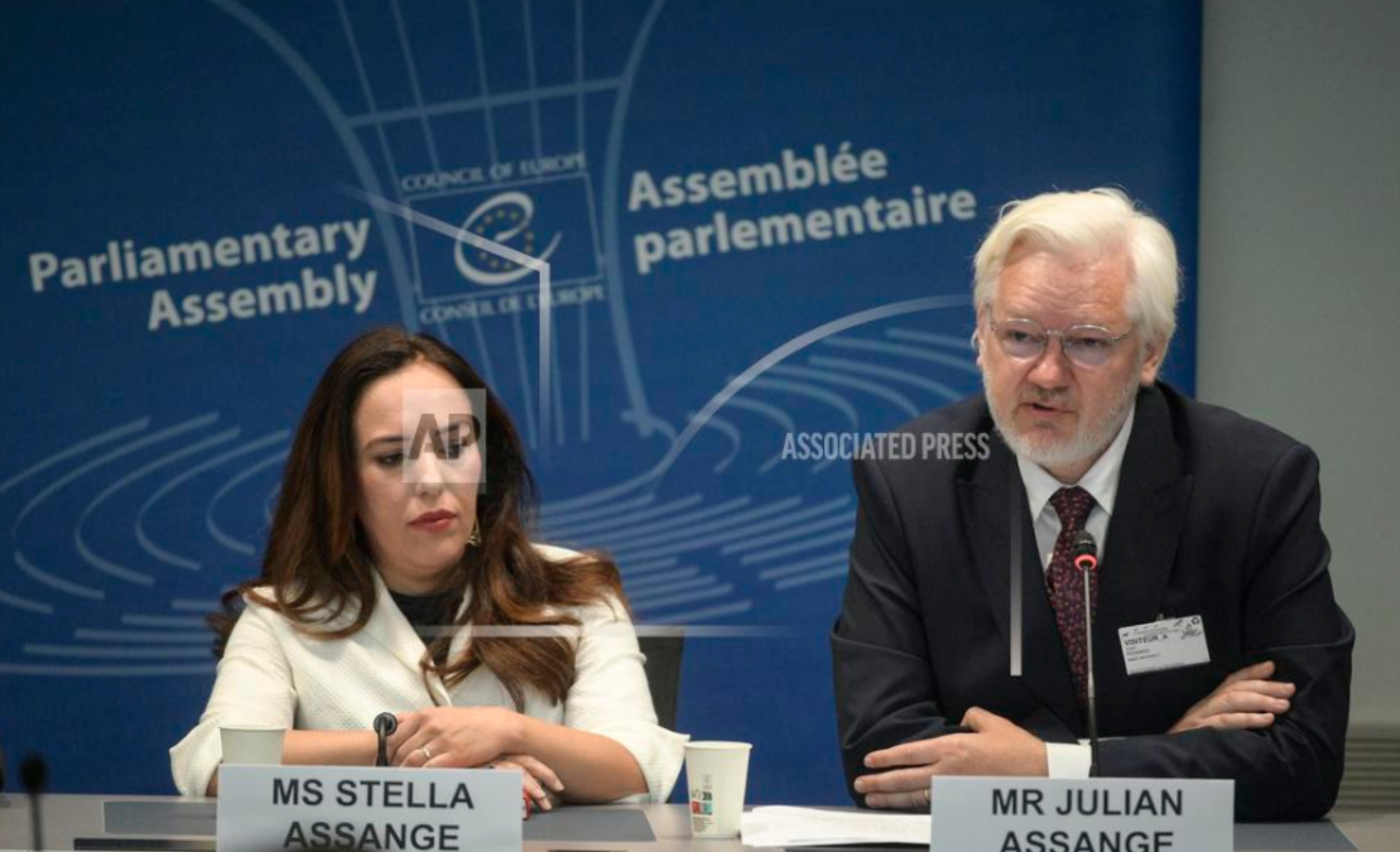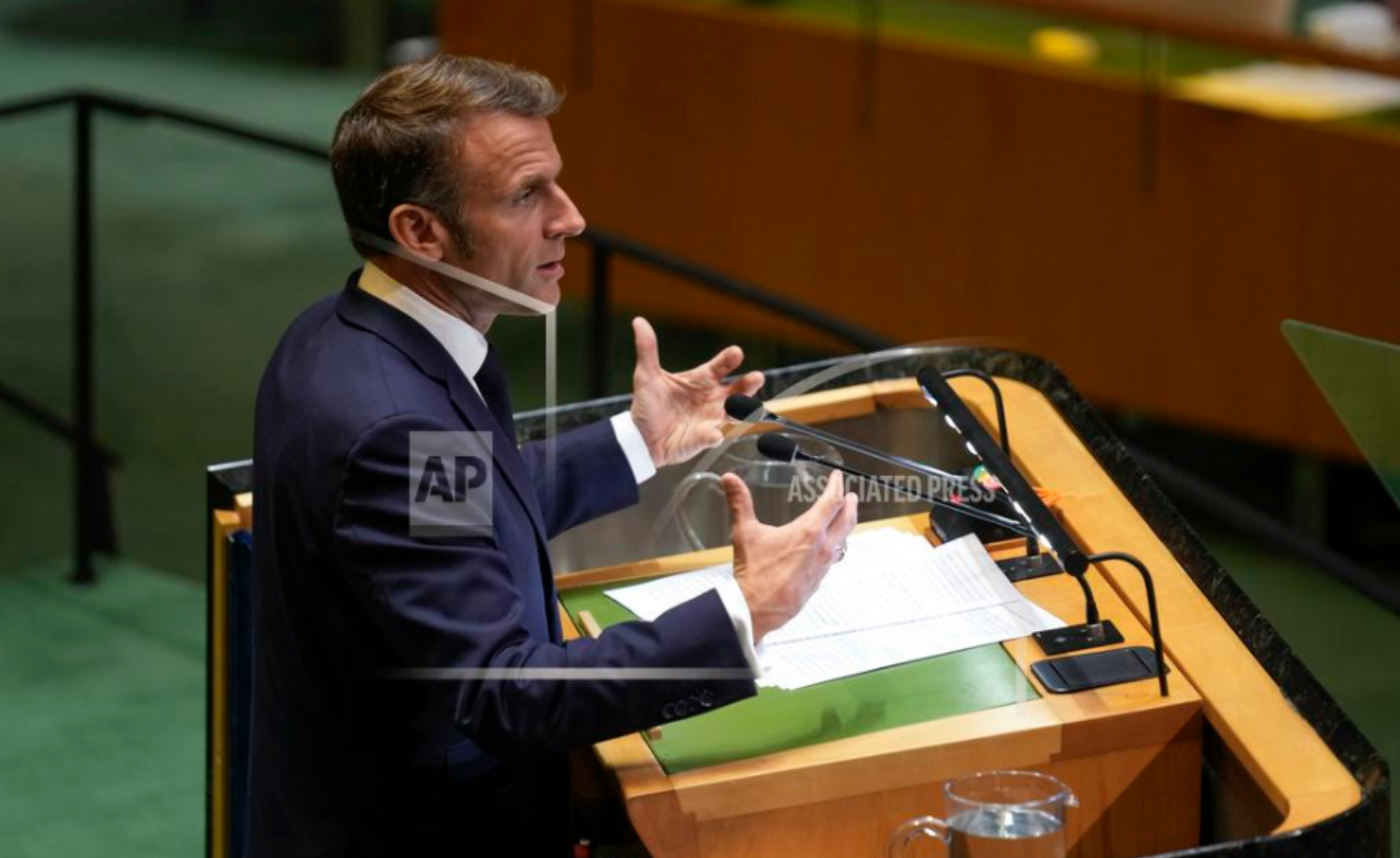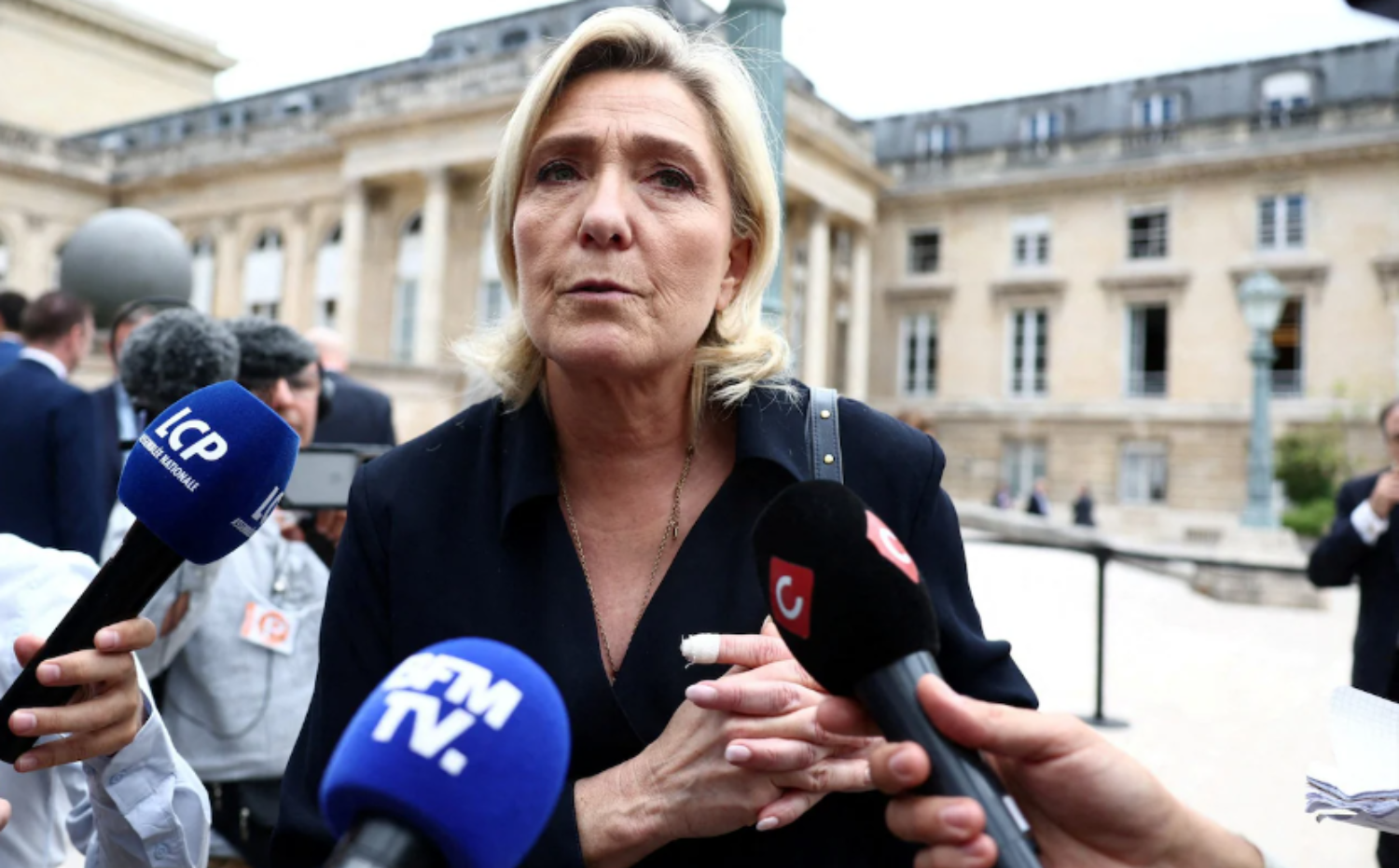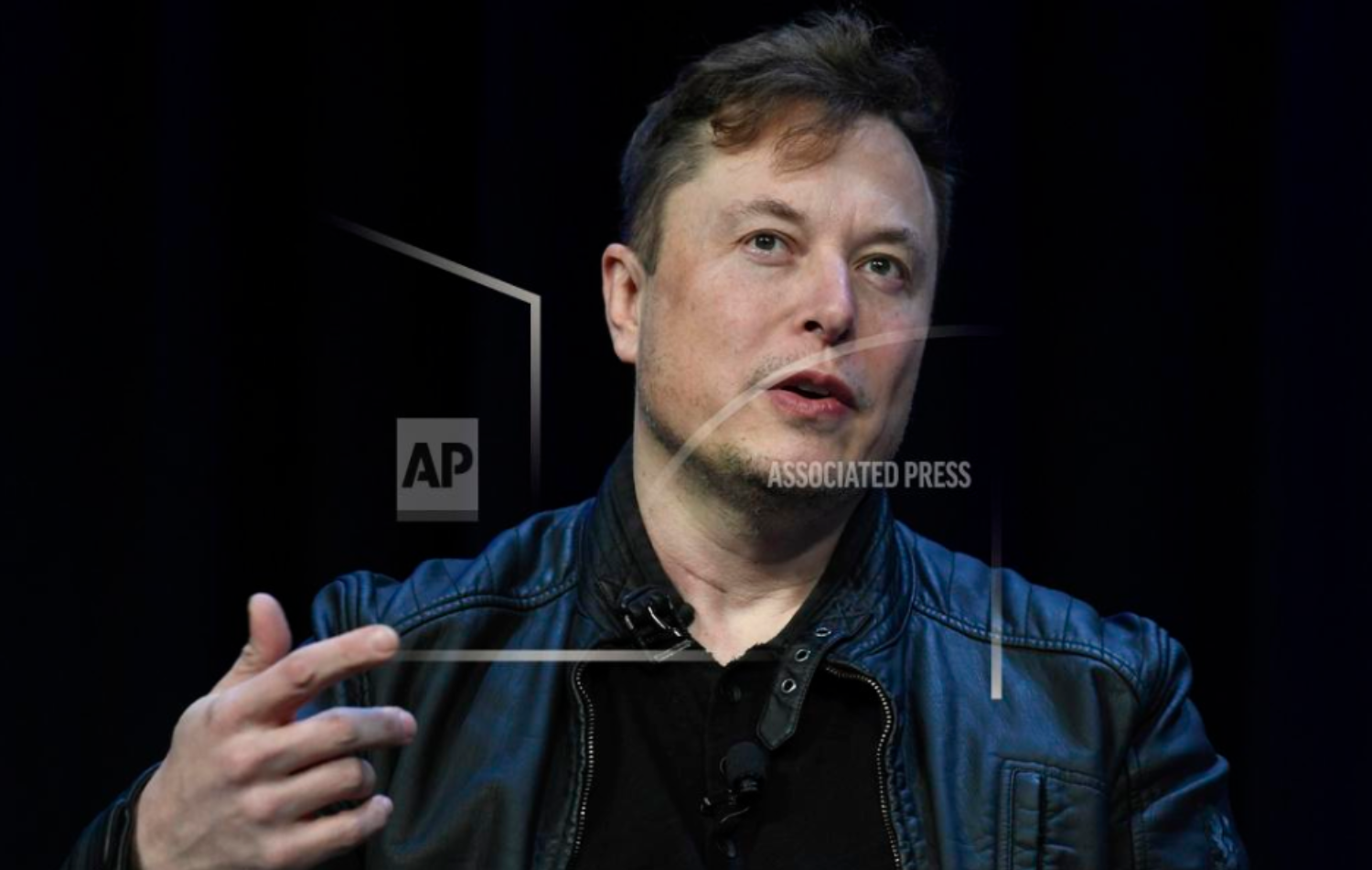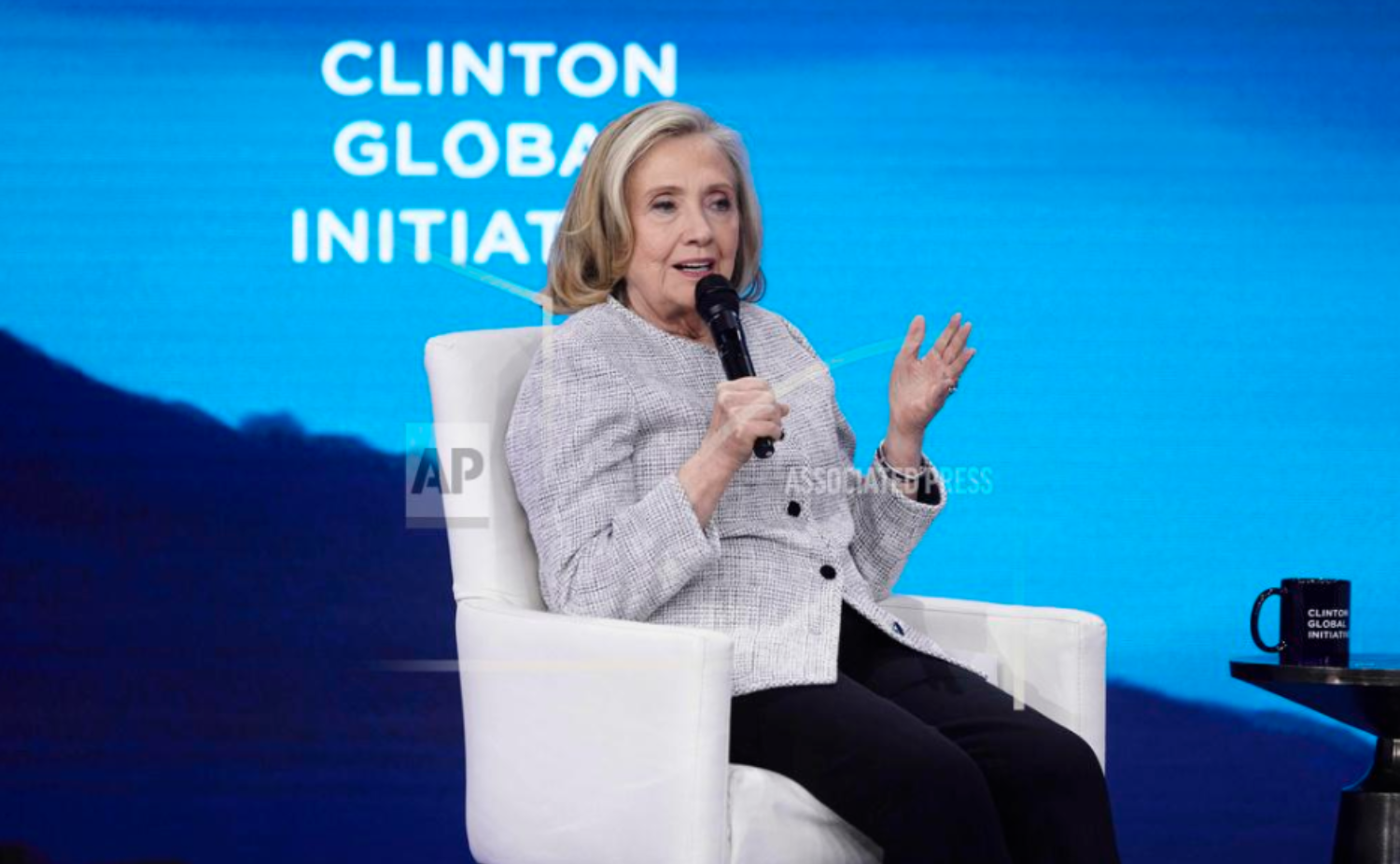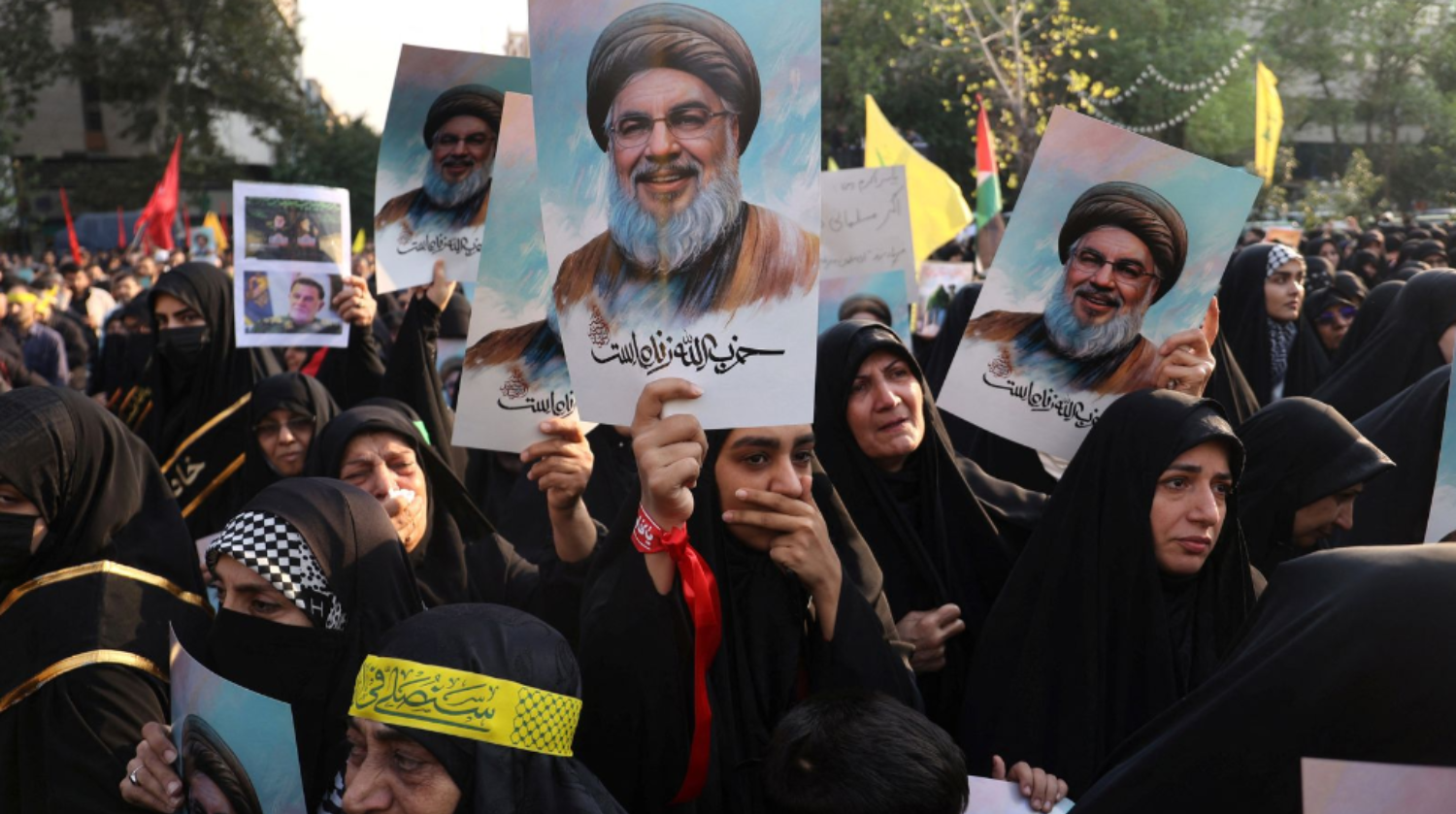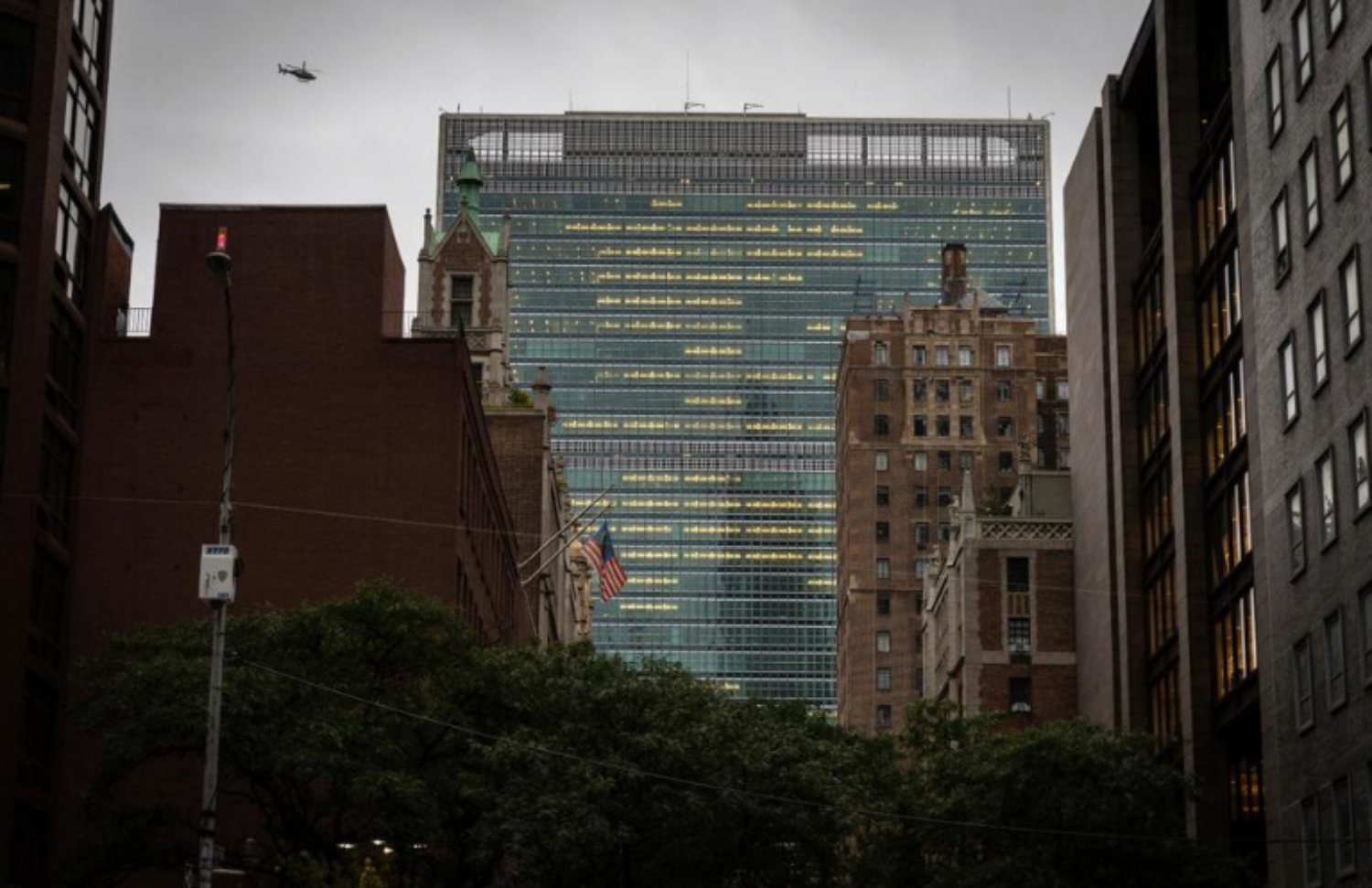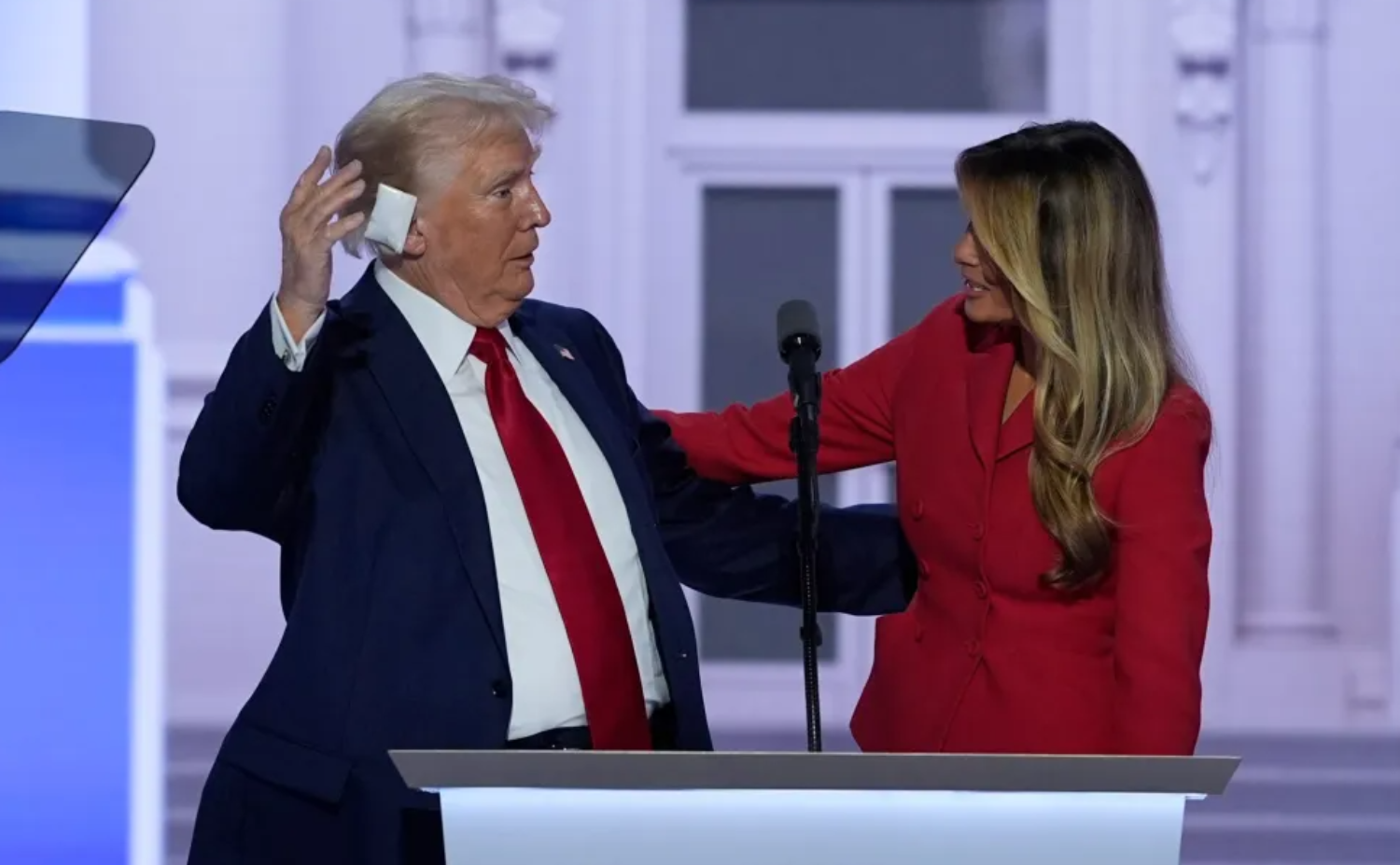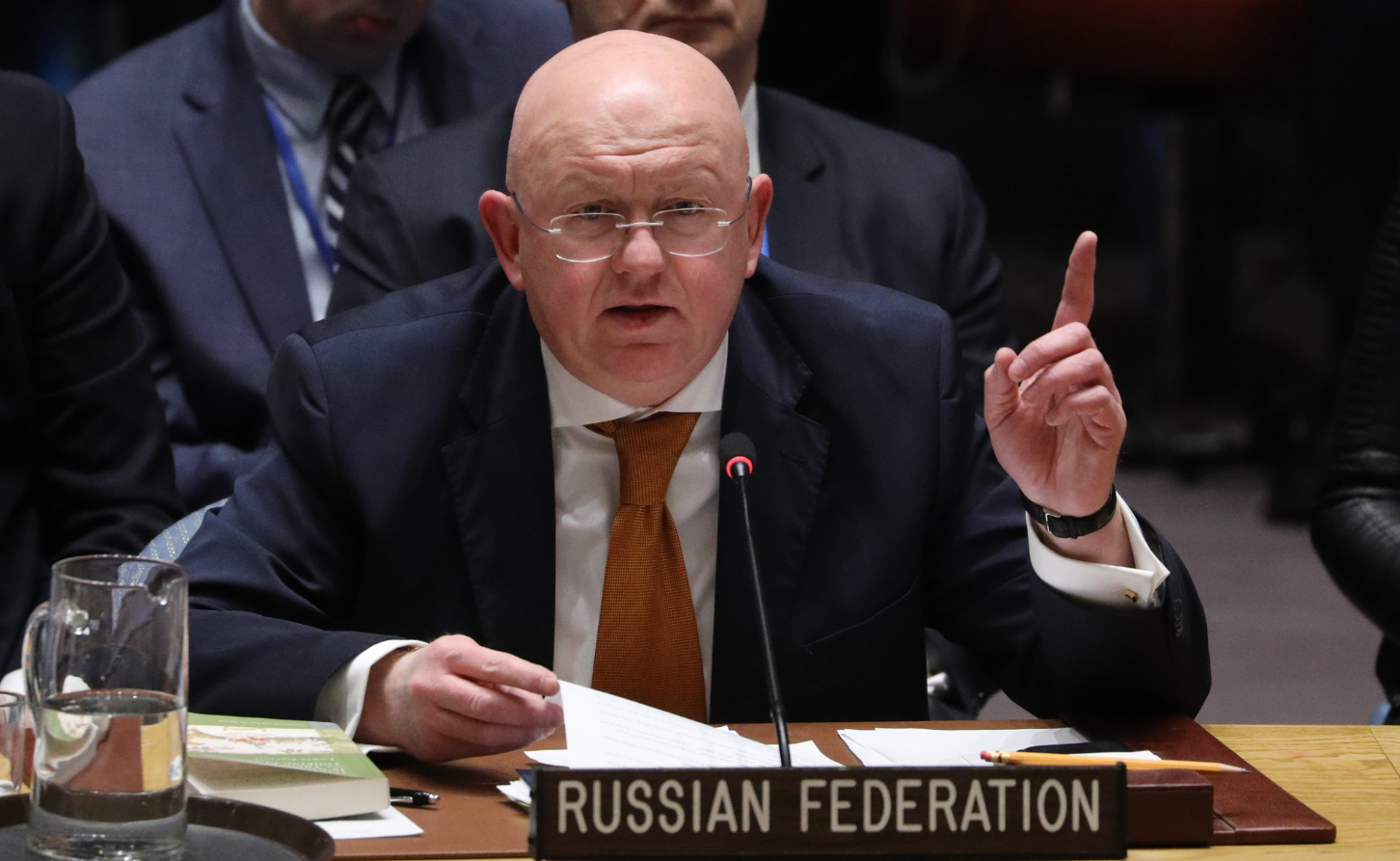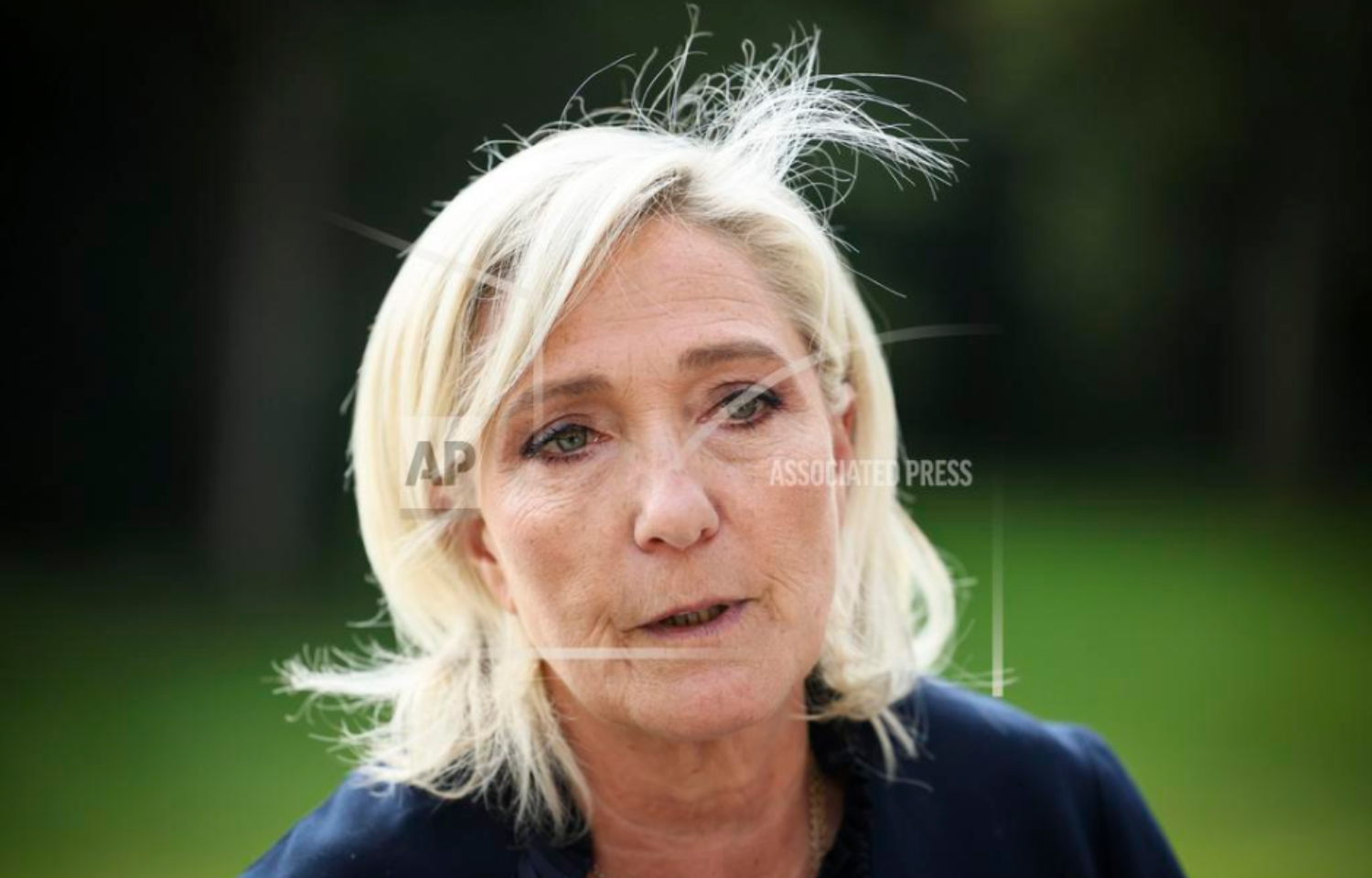-
Posts
10,101 -
Joined
-
Last visited
Content Type
Events
Forums
Downloads
Quizzes
Gallery
Blogs
Everything posted by Social Media
-
A 19-year-old woman was arrested in Sydney after allegedly displaying a Hezbollah flag at a pro-Palestine and Lebanon rally held over the weekend. The New South Wales police confirmed that her arrest was part of "Operation Shelter," a police initiative created last year to oversee protest activities related to the ongoing Israel-Gaza conflict. Hezbollah, a Lebanese Shia Islamist political and militant organization, has been officially designated a terrorist group by the Australian government since 2021. Though protests are generally allowed in Victoria, the authorities are maintaining a firm stance on unlawful actions. "Victoria police does not have the power to deny a protest from occurring, so long as it is lawful. There is no permit system for protests in Victoria," the force reiterated. The display of Hezbollah flags during the weekend protests has drawn further attention from both state and federal law enforcement agencies. Politicians and officials are now debating whether existing laws that prohibit the display of symbols linked to terrorist groups should be strengthened to address incidents like these. Based on a report from: The Guardian | Sky | X 2024-10-03
-
Keir Starmer is venturing into politically dangerous territory as he prepares to travel to Brussels. His mission includes the contentious possibility of reviving a youth mobility scheme between the United Kingdom and the European Union. This initiative would allow young citizens to live and work across borders for limited periods, an idea that has sharply divided opinion within the U.K. For some, this represents a long-awaited reconciliation after years of strained relations under the previous Tory government. However, to others, particularly staunch Brexiteers, this deal would signify a betrayal of the hard-won Brexit. Starmer is acutely aware of the potential backlash, not only from the Conservative Party and Euroskeptics like Nigel Farage but also from within his own government. His interior minister, Yvette Cooper, has expressed concerns that such a scheme could inflate migration figures, a point of contention for those looking to curb immigration. "The home secretary believes such a plan would 'not be compatible' with pledges to bring down net migration," an insider noted, casting doubt on the feasibility of pushing this forward. Despite these internal divisions, there is also significant support for the youth mobility scheme. Many Labour ministers and EU officials argue that the temporary nature of the program should exempt it from migration statistics. In fact, similar schemes exist between the U.K. and countries like Australia and Japan, with minimal impact on net migration. Nonetheless, the Home Office remains firm in its stance. "They would still be part of the U.K. labor market," a source stated, indicating that even temporary participants would affect the overall numbers. Cooper, unwilling to engage in what some see as "fiddling the books," remains a formidable opponent. Starmer's upcoming discussions with European Commission President Ursula von der Leyen are part of a broader reset of relations between the U.K. and the EU. While the youth mobility scheme is a focal point, Brussels is also eager to address lingering trade barriers, including mutual recognition of professional qualifications. An EU diplomat emphasized the importance of the youth mobility scheme as part of a broader negotiation strategy: "Brussels sees youth mobility as a 'quid pro quo' for the U.K.'s 'aggressive interests.'" As Starmer navigates these sensitive discussions, he has so far been non-committal on the issue. His usual response is that there are "no plans" to join such a scheme, yet the door remains open. Starmer has already ruled out a return to the customs union or single market, but the youth mobility proposal may offer more flexibility, particularly given the political and economic advantages it could bring. Support for the scheme is also growing within Starmer’s own party. Labour backbenchers, regional mayors like Sadiq Khan and Andy Burnham, and the Labour Movement for Europe have all spoken out in favor. Burnham commented, "I think the public can see the way in which Brexit is closing down opportunities for young people." Many argue that reversing some of Brexit’s harsher consequences would benefit not only young people but also British businesses struggling with staff shortages. Yet Starmer must weigh these potential benefits against the political risks. Nigel Farage’s Reform U.K. party is poised to capitalize on any perception that Starmer is undermining Brexit. Moreover, even within Labour, there are factions that remain cautious about reopening any discussions with the EU that might be interpreted as backtracking on the 2016 referendum results. The European Union, for its part, is willing to compromise. A senior EU diplomat suggested that the bloc is considering ways to make the youth mobility scheme more palatable to the U.K., including caps on numbers or tighter eligibility criteria. “Once the talks are on I think everything can be discussed,” the diplomat said, signaling flexibility from Brussels. While Starmer’s upcoming meeting with von der Leyen is seen as the starting point for a reset in relations, real negotiations won’t begin until 2024 when the new European Commission takes office. Ultimately, the political tightrope Starmer walks in these negotiations reflects the complexity of post-Brexit relations. Whether or not a youth mobility deal is struck, Starmer’s efforts to redefine the U.K.’s relationship with Europe will inevitably stir debate on all sides. Based on a report from: Politico 2024-10-03
-
Rapper and music mogul Sean Combs, known as P Diddy, is facing new allegations of sexual misconduct, with 120 individuals coming forward, according to attorney Tony Buzbee. At a press conference in Texas, Buzbee, who represents the claimants, revealed that the accusations involve both male and female accusers, with 25 of them being children at the time of the alleged offenses. Buzbee expects lawsuits to be filed in the coming month. Combs, also known by his stage names Puff Daddy and Diddy, is already awaiting trial on sex trafficking charges. In response to these new claims, Combs' legal team has vehemently denied the allegations. "Mr. Combs emphatically and categorically denies as false and defamatory any claim that he sexually abused anyone, including minors," said Erica Wolff, one of his lawyers. Wolff also criticized the media attention surrounding the case, calling it a "reckless media circus." Despite these denials, Combs has been embroiled in a series of legal challenges over the past year. In addition to these new allegations, a video surfaced in May showing him physically attacking his ex-girlfriend Cassie. He later apologized for his actions in the video, admitting they were "inexcusable" and expressing his disgust over his behavior. Combs has been in custody at the Metropolitan Detention Centre in Brooklyn since September 17, after pleading not guilty to charges of sex trafficking, racketeering conspiracy, and using his influence to coerce women into drug-fueled sexual performances with male sex workers. These events, dubbed "Freak Offs," are central to the sex trafficking charges he faces. Combs has vowed to clear his name and fight the charges in court. His legal team has tried unsuccessfully to secure his release on bail, offering a $50 million package that included house arrest at his Florida mansion with GPS monitoring. The courts, however, have denied these applications. Combs remains a significant figure in the music industry, having founded Bad Boy Records in 1993 and winning three Grammy Awards throughout his career. Despite his success in the industry, the legal battles he faces continue to cast a shadow over his legacy. Based on a report from: Sky News 2024-10-03
-
China’s economic challenges continued last month, with data suggesting the world’s second-largest economy is still struggling to regain momentum. Factory production in September appeared to have weakened for the fifth consecutive month, according to the Chinese statistics bureau's official Purchasing Managers' Index (PMI). The PMI is an essential measure of economic activity, calculated based on industry surveys. A PMI reading above 50 indicates expansion, while a score below 50 signals contraction. In September, the headline PMI came in at 49.8, a slight improvement over August’s 49.1 but still signaling contraction. Since September 2023, the PMI has surpassed 50 only three times, with a peak of 50.8 in March. While manufacturing output rose to 51.2 in September from 49.8 in August, other indicators remained weak. New orders slightly improved to 49.9, suggesting demand is still sluggish. Supplier delivery times dipped from 49.6 to 49.5, a change that could indicate either faster deliveries or softer demand. Finished goods inventories stood at 48.4, down marginally from the previous month, which may suggest businesses are either meeting demand or keeping inventories low due to a cautious outlook. The employment sub-index remained weak at 48.2, its 13th consecutive month of contraction, reflecting persistent stagnation in the industry. China’s non-manufacturing sector, including services and construction, recorded a neutral 50.0 in September, a slight decline from 50.3 in August and the lowest level since September 2023. While the manufacturing sector remains below the 50-point threshold, September’s PMI reading was the highest since April. National Bureau of Statistics statistician Zhao Qinghe, cited by state media outlet Xinhua, noted that the data reflects some improvement in overall economic conditions and an increase in business production. In response to these economic struggles, Chinese policymakers have introduced various initiatives aimed at boosting domestic demand. Measures include trade-in programs for older electronics and home appliances, and approximately $43 billion in long-dated bonds to support indebted local governments and drive growth through infrastructure projects. Despite these efforts, headwinds like the ongoing real estate crisis and high youth unemployment continue to pose significant challenges. Both Goldman Sachs and Citigroup have recently lowered their GDP growth forecasts for China to 4.7 percent for 2024. In an effort to address these issues, China’s top financial regulators and central bank recently unveiled a sweeping stimulus package, the most ambitious since the pandemic. The package includes cuts to the reserve requirement ratio for banks, freeing up capital for loans, and instructions to banks to reduce mortgage rates by October 31. Chinese stocks responded positively, with a major rally marking the largest single-day gain since 2008. However, some experts remain skeptical about the effectiveness of the measures. Economist George Magnus, a University of Oxford China Centre associate, told *Newsweek* that “China’s economy needs Keynesian-style consumption stimulus, tax reform, and greater government intervention to stabilize home sales and manage losses." Magnus likened the current relief plan to "administering painkillers to someone who needs surgery," highlighting concerns that the stimulus may not address the root causes of the economic malaise. Based on a report from: Newsweek 2024-10-03
-
On Monday night, just before closing time, terror swept through the Ludu International Shopping Plaza in Shanghai’s Songjiang district. A man, identified by police as 37-year-old Lin, embarked on a stabbing spree that left three people dead and injured 18 others. Witnesses describe the panic and chaos that unfolded in the mall as Lin moved through the shopping center, attacking strangers seemingly at random. One young shopkeeper, who was not at work during the attack, said she is now afraid to return. “It’s like a movie. You can’t believe there’d be something so terrifying right next to you,” she said, pointing to the increased security presence near her store. She admitted feeling somewhat reassured by the extra officers, but her fear persists. Many of her colleagues who were present during the attack have yet to return to work, too shaken by the experience. “None of them came to work today. They say they don’t dare to return,” she shared. Another woman, who runs a small electronics stall, narrowly escaped the attack by mere minutes. “When I heard about it later, I was so scared I couldn’t sleep,” she said, visibly shaken by the thought of how close she had come to danger. This stabbing is the latest in a series of knife attacks in China, prompting ongoing discussions about societal pressures and mental health issues. Some have raised concerns that economic difficulties may be contributing to increased violence, although no justification can explain such acts of terror. Others suggest these attacks are copycat crimes, as similar incidents have occurred throughout the country in recent years. The Chinese government, however, appears eager to minimize public discussion of the attack. Social media platforms are tightly censoring images and conversations about the incident. Despite this, some people have expressed relief that China’s strict gun control laws prevent more deadly outcomes, contrasting the situation with countries like the United States, where access to firearms could result in even more fatalities in such scenarios. Still, the attempt to suppress public discourse surrounding the attack reveals the discomfort this incident has caused among authorities. Many witnesses and store staff were barred from speaking to the media, with managers intervening during interviews. For those like Zheng, the quick return to normalcy at the mall feels surreal. “I can only feel sorrow for the victims,” he said, reflecting on the lack of public recognition for the lives lost. Based on a report from: BBC | X 2024-10-03
-
Canadian opposition leader Pierre Poilievre has been dominating polls, with his Conservative Party now outpacing the ruling Liberals. Poilievre, who became leader of the Conservative Party two years ago, is being hailed as a rising star not only in Canada but also abroad. His popularity marks a significant turnaround for Canada’s political right, which has undergone a dramatic revival after years in the wilderness. When Poilievre’s campaign team first began, they had concerns about how they would gather support across Canada, a vast and sparsely populated country where political rallies can be difficult to pull off. "Within about a week we realized that wasn’t going to be a problem," says Ginny Roth, who headed communications for Poilievre's campaign. "We knew Pierre was popular online but we didn’t know how that would translate on the ground. In fact, we were soon having to book bigger venues." The campaign was a resounding success, with around 93,000 people attending 78 rallies across the country. Poilievre attracted 300,000 new members to the Conservative Party, raised more funds than his competitors combined, and won two-thirds of the vote, crushing centrist rival Jean Charest. His relentless travel and connection with voters allowed Poilievre to fine-tune his message, focusing on rising costs of living, housing affordability, and visible crime. "He stuck around at the end of each rally to shake hands and take selfies with everyone that wanted one," Roth recalls. "He was often still at the venue at 1 am or 2 am." Poilievre’s approach helped him understand the struggles Canadians face, such as soaring gas prices, which fueled his targeted campaign. Housing has become the cornerstone of Poilievre's political platform, a key issue that has resonated with Canadians. Since the Liberals returned to power in 2015, house prices have surged by 66%, making homeownership increasingly out of reach. Michael Bonner, a political consultant, notes, "Poilievre has taken housing and made it the absolute centerpiece of his political project." By autumn 2022, the Conservatives had pulled ahead of the Liberals in the polls, with their popularity now at a high not seen since 1988. In a surprising shift, the Conservatives lead among voters aged 18 to 35 by 15 percentage points. Omer Aziz, a former foreign policy advisor to the Liberal government, admits, "We Liberals didn’t take him seriously enough early on. He could wipe us out." With Prime Minister Justin Trudeau's approval rating plummeting to -35, polls suggest the Liberals could fall to the fourth-largest party in the next election, expected by October 2025. Poilievre's rise has not gone unnoticed abroad, either. Robert Jenrick, a leading figure in the UK’s Conservative Party, traveled to Canada to meet Poilievre, seeing him as an example of how to build a popular conservative movement in opposition. Poilievre’s success is even more remarkable given the state of Canada's conservative movement three decades ago. In 1993, the once-powerful Progressive Conservatives were decimated in an election, losing 154 seats and keeping only two. Over time, the party merged with the Reform Party, led by Stephen Harper, who became prime minister in 2006. "Poilievre represents part of Harper’s legacy," says Sean Speer, a public policy analyst. Poilievre, the adopted son of French-Canadian teachers, entered politics at a young age, and by 25, he was elected as an MP. Known for his brash style and love of debate, Poilievre has always been an aggressive political player. "He relishes the verbal sparring; he always has," says Bonner. Poilievre’s recent rise to international prominence was boosted when a video of him casually eating an apple while dismantling a journalist’s questions went viral, even catching the attention of Elon Musk. Poilievre’s populist appeal was solidified during the "Freedom Convoy" protest against vaccine mandates in early 2022, where he stood in support of the truckers. While some viewed his position as opportunistic, it resonated with many Canadians and bolstered his popularity. "If I’d been advising him, I would have recommended against the position he took and I would have been totally wrong," admits Speer. Looking ahead, Poilievre faces the challenge of balancing his populist rhetoric with traditional conservative economic principles. He has called for the firing of the governor of the Bank of Canada and has promised to defund the CBC, which he describes as a “propaganda arm” of the Liberal Party. Though Trudeau has criticized Poilievre for attacking Canadian institutions and "pitting Canadians against each other," the Conservative leader’s momentum shows little sign of slowing. As voters grow increasingly frustrated with the cost of living and rising housing prices, Poilievre’s message is resonating with a new generation of Canadians. Whether this political shift will last, only time will tell. Based on a report from: Daily Telegraph 2024-10-03
-
Professor Brian Cox, the renowned physicist and TV personality, has revealed that despite his lifelong fascination with space, he would decline an opportunity to travel to Mars, describing such a trip as "horrible." The 56-year-old scientist, who transitioned from a career in music to become one of the UK’s most popular science communicators, expressed a preference for visiting the Moon instead. In an interview with *Radio Times*, Cox explained why a mission to Mars does not appeal to him, despite the allure of interplanetary exploration. "No, I wouldn’t go, it’d be horrible!" he said. "I can’t picture going on a two-year journey in a capsule – but I can picture going on a week-long journey in space. I was always obsessed with Apollo, so I’d love to go to the Moon." Cox’s fascination with the Moon dates back to the Apollo 8 mission, which in 1968 became the first manned spacecraft to orbit the Moon. A photograph from that mission remains particularly significant for Cox, who described it as “one of the defining images” of his life. This connection to the early days of space exploration continues to inspire his work, as seen in his upcoming BBC Two series about the Solar System. The new series will delve into some of the lesser-known aspects of the Solar System, including its "hidden realms," "wildest weather," and "oddball" planets. In the interview, Cox praised recent advances in space travel technology, particularly the development of reusable rockets by Elon Musk’s aerospace company, SpaceX. He acknowledged that such innovations have made space travel more accessible and cost-effective, especially for missions near Earth's orbit. "It’s cost-effective to operate near to the Earth’s orbit," Cox said, highlighting how these technological strides could revolutionize space exploration. He also reflected on the historic Polaris Dawn mission, which SpaceX partially funded. The mission, led by billionaire Jared Isaacman, made headlines in September when Isaacman became the first private-sector astronaut to conduct a spacewalk. "It was a hell of an achievement – the furthest humans have been from Earth since Apollo 17 in 1972 and on what was basically a commercial flight. It’s high risk," Cox remarked. NASA hailed the mission as a “giant leap forward” for the commercial space industry, while Musk called it a “huge success.” When asked whether the vast sums of money invested in space exploration were justified, Cox defended the expenditures. “The real answer is that investing very small amounts of money in the exploration of our cosmic neighbourhood is not something that should concern us, because it’s cost-positive,” he argued. He went on to explain the unpredictable nature of discovery, stating, “Nature is very complicated and intricate, and discoveries can come from the strangest of places.” As Cox continues to inspire audiences with his insights into space, his reflections on the future of exploration underscore the importance of investing in the unknown, even if some frontiers—like Mars—are not destinations he would personally choose to visit. His love for the Moon, however, remains undiminished, and his passion for space exploration is as strong as ever. Based on a report from: Daily Telegraph 2024-10-03
-
Troll posts making false claims removed. A link to a questionable source also removed.
-
Swifties are reeling after a video of a man smashing a $4,000 autographed Taylor Swift guitar went viral. The unnamed man stirred up controversy by destroying the guitar, signed by the 14-time Grammy winner, just moments after purchasing it. In the footage, which surfaced on Sunday, September 29, the white-haired man can be seen picking up the guitar before repeatedly smashing it with a hammer, sending shards of wood flying across the room. As the destruction unfolds, his laughter fills the air, seemingly delighted by the chaos he has caused. At one point, it appears he’s about to deliver a final, dramatic overhead smash before the host of the event steps in, taking the hammer away. Other comments were more critical of the man's behavior. One person sarcastically quipped, "What a normal, well-adjusted human." Another criticized the wastefulness of his act, noting, "Why didn't he give some of that cash to his poor neighbors who can't afford eggs and cereal. These are not serious people." While most fans were left bewildered, one commenter tried to look on the bright side, saying, "I hope the auction price went to a great cause!!!" The exact reason behind the man’s actions remains unclear, but some have speculated that the stunt could have been politically motivated. Earlier in September, Taylor Swift publicly endorsed Kamala Harris for president, and some believe this may have triggered the bizarre protest. "Yeah, this endorsement thing ain't working out too hot for Ms. @taylorswift13," one person remarked online. However, not everyone condemned the man’s actions, with some actually supporting him. One user stated, "I want to buy this guy a beer," while another boldly declared, "He's my hero." As of now, Taylor Swift has yet to comment on the viral video, leaving fans and critics alike to continue debating the motivations and implications behind the shocking act. Based on a report from: Newsweek 2024-10-02
-
In his first public address since being released from prison, WikiLeaks founder Julian Assange declared that his freedom was not due to the justice system functioning as intended, but rather because he "pled guilty to journalism." Speaking at the Council of Europe in Strasbourg, France, Assange gave his testimony to the Parliamentary Assembly, discussing the effects of his detention and conviction on human rights. The assembly consists of representatives from 46 European nations, and his speech was given ahead of a broader debate on his case and its implications. Assange’s supporters, particularly advocates of press freedom, praised his efforts, arguing that his work was vital in exposing military abuses that might otherwise have gone unchecked. However, his critics took a starkly different view. They accused him of recklessly endangering national security and putting lives at risk, particularly those of individuals who had provided information to U.S. forces in the Middle East. Some argued that Assange’s actions had exceeded the boundaries of traditional journalism, turning him into a criminal rather than a whistleblower. Assange’s legal journey reached its conclusion in a U.S. district court on the Northern Mariana Islands, an American commonwealth in the Pacific. There, he pleaded guilty to charges under the Espionage Act, admitting to conspiring to unlawfully obtain and distribute classified national defense information. His sentence amounted to the time he had already spent behind bars while contesting extradition from the U.K. to the United States. The Council of Europe’s human rights committee took a strong stance on the issue, designating Assange as a political prisoner and issuing a draft resolution condemning the harsh treatment he endured. The committee expressed its deep concern about the wider implications of his case on press freedom and human rights, highlighting what they described as a chilling effect on investigative journalism. As the debate surrounding his actions and their consequences continues, Assange’s legacy remains polarizing. For some, he is a champion of transparency and accountability in government. For others, his methods posed an unacceptable risk to lives and national security. What is clear is that his case has ignited significant discussions about the role of journalism, freedom of information, and the ethical boundaries that should govern both. Based on a report from: ABC News 2024-10-02
-
Italian Prime Minister Giorgia Meloni has been working to present a moderate image to the European political establishment, but her government’s recent crackdown on protests has raised alarms about the country’s shift towards more authoritarian governance. A new "security bill," passed by the lower house of the Italian parliament in mid-September, targets climate activists and criminalizes the obstruction of roads and railways, with penalties of up to two years in prison. Critics argue that, if the Senate approves the bill, it could effectively ban peaceful street protests in Italy. This legislative move follows a series of actions by Meloni’s government to deter protest activities, particularly in response to climate demonstrations that have drawn international attention. The government had already imposed harsh penalties for damaging artworks, raising fines to €60,000 after activists targeted Rome's Trevi Fountain and Botticelli’s “Birth of Venus.” These tougher measures aim to prevent disruptions like those seen during the G7 demonstrations in Turin earlier this year, where protesters blocked highways and burned photos of world leaders. The bill also extends prison sentences for those resisting the police and increases the punishment for inmates participating in hunger strikes, leading some to call it the "anti-Gandhi" law. Despite these criticisms, Nicola Molteni, Undersecretary for the Interior Ministry, defended the government’s approach. In a statement to POLITICO, he argued that the current administration has done more to protect the right to protest than previous ones, stating, “This government has never denied permission for or banned any protest unless it risked putting in danger the public order of our country.” He emphasized that the right to protest must not interfere with the rights of others, including the ability to work, access transportation, or receive emergency services. “This enters in a perimeter of illegality that cannot be tolerated,” Molteni said. However, as Meloni faces mounting political challenges—such as budget negotiations, coalition disagreements, and looming regional elections—her critics accuse her of using the protest crackdown as a diversionary tactic. Laura Boldrini, a former speaker and current MP for the center-left Democratic Party, expressed concern about the government's trajectory, stating, “This government is drifting in a repressive direction, limiting peaceful protest and dissent and pushing Italy in a direction outside the perimeter of a liberal democracy, toward a democraship in the style of Orbán.” The focus on security has been a key element of Meloni's tenure since she took office in 2022. One of her government’s first legislative moves was to crack down on illegal raves, with organizers facing up to six years in prison. Since then, Meloni’s administration has introduced measures that make it easier to imprison teenagers, pregnant women, and mothers with newborns, while also instituting automatic detention for migrants. Additionally, the government has rolled back reproductive and LGBTQ+ rights by allowing pro-life organizations into abortion clinics, banning surrogacy, and refusing to issue birth certificates for the children of same-sex couples. Human rights organizations have expressed concern about these developments. Antigone, an association that advocates for the rights of incarcerated individuals, criticized the government’s reliance on the penal system to address social issues. “The government has decided to manage social issues in the most illiberal possible way, using the penal system, rather than [using] dialogue, and resources, that you would expect in a democracy with the rule of law,” the group said. Meloni has been unapologetic about her focus on security, declaring it her top priority ahead of the security bill’s introduction. Molteni explained that security is essential for fostering economic growth and investment and for protecting vulnerable populations such as the elderly. However, environmental activists feel particularly targeted by the government’s crackdown. Climate campaigners have been labeled “eco vandals,” and Italy's powerful anti-mafia investigative units have been used to monitor their activities. Giacomo Baggio, a member of the Last Generation climate protest group, is currently facing a curfew and a ban on leaving his city pending a hearing, after he filed a complaint against the police for assault during a protest. Based on a report from: Politico 2024-10-02
-
French President Emmanuel Macron is finding it difficult to maintain his usual command since his new government was established earlier this month. Sources familiar with the situation report that Macron’s leadership style, once firmly top-down, is now facing challenges in light of changes within his administration. Macron, who has been president for seven years, built his governance on a “Jupiterian” model, one where power flowed directly from the top. However, since the appointment of Prime Minister Michel Barnier and the introduction of a new cabinet, Macron’s influence appears to be diminishing. The new government includes a mix of staunch conservatives alongside Macron’s centrist allies, creating a complex dynamic. One of Macron’s long-time allies remarked on the noticeable shift in decision-making. "Mechanically, decisions don’t go up the chain of command as much as before, the data is not quite so precise, and the conversations with ministers aren’t as sharp," said the ally, who spoke under anonymity. The source went on to describe a “vacuum effect” at the top of the government. The changes have not only impacted Macron but also those working within his administration. A parliamentary adviser noted that many of Macron’s advisers have felt the effects of Barnier’s arrival. “[They] have lost 50 percent of their work and have been removed from cross-ministry meetings,” the adviser commented, highlighting the growing separation between Macron’s circle and Barnier’s new team. The decision to appoint Barnier, former chief Brexit negotiator for the European Union, as prime minister came after a summer snap election that left the French parliament fractured. While the election saw gains for both the far left and far right, no single political force came close to securing a majority. In response, Macron’s move to appoint a conservative veteran like Barnier is seen as an attempt to break the deadlock, but it has also created an unusual power-sharing arrangement between the president and the right, even if some centrist allies remain in the government. In fact, Macron himself has distanced himself from the newly appointed cabinet. “Not [my] government,” he reportedly commented last week. His discomfort with sharing power is evident, as he has often been known to bypass his prime ministers and take direct control in times of domestic crises. According to a government adviser, the new setup has left Macron unsettled. “When you change habits, it upsets, it unsettles, it can give you vertigo,” the adviser said. An official from Macron’s Renaissance party added that the president is now “looking for the instruction manual” as he navigates this unfamiliar terrain. Macron’s frustrations have also surfaced publicly. During an official visit to Canada last week, he faced criticism from pro-Palestinian protesters, leading to a rare outburst. “If only they knew how hard we fight to improve things … I cannot but feel a sense of injustice when I’m challenged like that,” he told reporters, adding, “In France, it is also the same situation.” Despite his continued efforts, some of Macron’s closest allies are skeptical about his ability to regain his previous level of control. One long-time confidant was blunt in their assessment. “The president can’t act and knows that he won’t regain the upper hand for the next three years,” the ally said, referring to the time remaining until the 2027 presidential election. As Macron grapples with the changing dynamics of his administration, it remains to be seen how he will adapt to the new political reality, where power is no longer concentrated solely in his hands. Based on a report from: Politico 2024-10-02
-
Marine Le Pen, leader of France’s National Rally, praised the growing success of anti-migration and eurosceptic movements across Europe following the Freedom Party of Austria’s (FPO) historic win in the country’s general election. Le Pen hailed the victory as a clear message of national sovereignty triumphing over what she perceives as Brussels’ overreach into the affairs of individual European nations. Eurosceptic leaders across the continent echoed Le Pen’s sentiments, congratulating Herbert Kickl, the FPO’s leader, on the party’s first-ever election victory. They framed the success as part of a larger shift in Europe, where populist and nationalist forces are pushing back against pro-European Union policies. Le Pen remarked, “After the Italian, Dutch, and French elections, this groundswell which carries the defense of national interests, the safeguarding of identities and the resurrection of sovereignties, confirms everywhere the triumph of the peoples.” Le Pen’s National Rally, which has long opposed immigration and promoted nationalistic policies, is allied with the FPO in the European Parliament. Her own victory in France’s European elections earlier this year was so impactful that President Emmanuel Macron called for snap elections, resulting in a right-wing government being formed. The rise of anti-migration and eurosceptic parties, including Le Pen’s, signals a growing challenge to the European Union’s influence and control over member states. Le Pen’s vision aligns with the goals of the Patriots for Europe, a coalition determined to restore powers from Brussels to national governments and fundamentally reform the European Union. This movement is gaining momentum in various countries, with the Freedom Party’s triumph being the latest sign of this shift. Eurosceptic leaders from other countries were quick to express their enthusiasm. Geert Wilders, the long-time eurosceptic leader in the Netherlands, celebrated the FPO’s victory alongside his own successes. Wilders, who led his Party for Freedom to a major victory in the Dutch elections last year, also seeks to challenge EU influence, although his controversial stance on issues such as a potential "Nexit" and banning the Koran prevented him from becoming prime minister. On the social media platform X, Wilders declared, “The Netherlands, Hungary, Belgium, Italy, Germany, Portugal, Sweden, France, Spain, Czech Republic, and today Austria! We are winning! Times are changing! Identity, sovereignty, freedom, and no more illegal immigration/asylum is what tens of millions of Europeans long for.” Hungarian Prime Minister Viktor Orbán, who has often clashed with Brussels over migration and other issues of sovereignty, also congratulated Kickl and the FPO, declaring, “Another win for the Patriots: a historic victory for FPO in Austria! Congratulations to Herbert Kickl!” Both Kickl and Orbán have been known for their opposition to immigration, and their governments are friendly toward Russia, a stance that has further distanced them from EU leadership. The FPO’s platform also echoes these positions, highlighting concerns over open borders and mass immigration. Their manifesto expressed a belief that Austria’s sovereignty is being eroded by the European Union, stating, “The government of the state is increasingly no longer in Vienna, but in Brussels. The space of the state is being eliminated by the de facto principle of open borders. The people of the state are gradually being replaced by permanent mass immigration.” Under the leadership of 55-year-old Kickl, the Freedom Party won 28.8% of the vote, surpassing the center-right Austrian People’s Party (ÖVP) at 26.3% and the center-left Social Democrats (SPÖ), who secured 21.1%, according to exit polls. Reflecting on the party’s historic performance, Kickl remarked, “We’ve made Austrian history because it’s the first time the Freedom Party is number one in a parliamentary election, and you have to think how far we’ve come.” This victory for the FPO, a party originally founded in the 1950s by a former Nazi lawmaker, signifies a remarkable political transformation and illustrates the increasing appeal of nationalist, anti-immigration platforms across Europe. The rise of these forces could reshape the political landscape of the continent in the years to come, as more and more nations gravitate toward movements that prioritize sovereignty, identity, and restrictive immigration policies. Based on a report from: Daily Telegraph 2024-10-02
-
Tech entrepreneur Elon Musk recently expressed his belief that the future of American democracy hinges on former President Donald Trump winning the upcoming election. Musk, the CEO of Tesla and SpaceX, took to the social media platform X, formerly known as Twitter, to share his controversial perspective, emphasizing that Trump is essential for the nation’s democratic survival. "Very few Americans realize that, if Trump is NOT elected, this will be the last election," Musk declared. "Far from being a threat to democracy, he is the only way to save it!" Musk's comments center around a theory regarding immigration and voting patterns in the U.S. According to Musk, Democrats are hastening the naturalization process for undocumented immigrants to create a new voting bloc that would significantly favor their party in future elections. He suggested that this influx of new voters would tip the scales, leaving Republicans at a permanent disadvantage. Musk elaborated on this idea by stating, "Let me explain: if even 1 in 20 illegals become citizens per year, something that the Democrats are expediting as fast as humanly possible, that would be about 2 million new legal voters in 4 years." He highlighted the delicate balance in swing states, adding, "The voting margin in the swing states is often less than 20 thousand votes. That means if the ‘Democratic’ Party succeeds, there will be no more swing states!!" Musk's support for Trump extends to accusations against the current administration. He claimed that President Biden and Vice President Kamala Harris are strategically relocating asylum-seekers to key battleground states like Pennsylvania, Ohio, Wisconsin, and Arizona. According to Musk, this is a deliberate effort to influence future elections in favor of the Democratic Party. The White House, along with the campaigns of Harris and Trump, has been contacted for responses to Musk’s statements. Immigration, an already contentious issue in American politics, has gained renewed prominence in the current campaign. Former President Trump has been particularly vocal about the subject, directing much of his ire toward Vice President Harris. Over the weekend, Trump intensified his criticism, calling for Harris to be impeached due to her handling of immigration policies. "Kamala’s Illegal Migrants. It’s the biggest crime story of our time. She should resign or be IMPEACHED!" Trump wrote in a post on his Truth Social platform. His rhetoric didn’t stop there. While speaking at a campaign rally in Erie, Pennsylvania, Trump accused Harris of enabling violence through her policies, stating, "Hundreds of people have been murdered because of her action at the border, and thousands more will follow in rapid succession. She should be impeached and prosecuted for her actions." Trump's criticisms came shortly after Harris made a visit to the southern U.S. border, a trip aimed at showcasing her stance on border security. While Harris has portrayed herself as tough on immigration, she has been critical of Trump’s approach to the issue, particularly his failure to pass a bipartisan border bill. During a rally in Nevada last month, Harris took direct aim at Trump, accusing him of talking tough but not following through. "But Donald Trump doesn’t want to fix this problem. He talks a big game about a lot of things," Harris told the crowd. "He talks a big game about border security, but he does not walk the walk." As the 2024 election draws closer, immigration is sure to remain a central issue, with both sides trading jabs over who is better equipped to handle the complex challenge. Musk’s public endorsement of Trump, coupled with his inflammatory claims, adds another layer of intrigue to an already heated political landscape. Based on a report from: The Hill 2024-10-02
-
Former Secretary of State Hillary Clinton has issued a stark warning about a potential "October surprise" aimed at distorting and misrepresenting Vice President Kamala Harris. In a recent interview with “Firing Line” host Margaret Hoover, Clinton expressed concerns that a concerted effort would be made to twist Harris’s image and achievements ahead of the upcoming election. Clinton highlighted the dangers of disinformation campaigns that begin online, often in dark corners of the internet, before spreading to larger platforms. “This is dangerous stuff,” she said. “It starts online often on the dark web. It migrates. It’s picked up by the pro-Trump media. It’s then reported on by everybody else, which makes sure it has about 100 percent coverage, and people believe it.” She warned that, as the election draws nearer, “the digital airwaves” will likely be filled with misinformation, which can easily gain traction and influence public perception. Looking ahead, Clinton speculated that Harris may become the target of a major disinformation campaign in the final weeks before the election. “I don’t know what it’s going to be,” she said about the anticipated “October surprise,” a term often used to describe last-minute efforts to influence an election. “But it will be something, and we’ll have to work very, very hard to make sure that it is exposed as the lie that it is.” Clinton also voiced concerns about the role foreign actors such as Russia, Iran, and China could play in fueling disinformation efforts, specifically through social media. She stressed the importance of the press maintaining a “consistent narrative” about the potential dangers posed by former President Donald Trump and his influence on the country. Based on a report from: The Hill 2024-10-02
-
Iran’s “axis of resistance” refers to a network of militia/terrorist groups and political factions throughout the Middle East that are supported by Tehran, primarily through its Revolutionary Guards and the elite Quds Force. This alliance allows Iran to project power in the region, targeting rival nations such as Israel and Saudi Arabia. While Hezbollah is the most prominent and well-armed of these groups, the axis stretches far beyond Lebanon, reaching into other countries across the Middle East. The Iranian government provides substantial financial and military support to these groups. Iran’s Revolutionary Guards funnel millions of dollars to arm and train various militia forces, ensuring that Tehran’s strategic interests are enforced. This support is not only aimed at countering Israeli influence but also at destabilizing Saudi Arabia and other rivals, cementing Iran’s foothold in the region. One of the key concerns for the international community is how Iran might respond to Israeli actions, particularly when Israeli forces recently attacked Hezbollah targets in Lebanon. The world watches as tensions between Israel and Iran-backed forces escalate, raising the potential for broader conflict. In Lebanon, Hezbollah has been a focal point of attention for Israel. The group, heavily armed and with a significant presence in southern Lebanon near the Israeli border, plays a crucial role in Iran's regional strategy. Its leader, Hassan Nasrallah, a powerful figure both politically and militarily, was killed in recent Israeli strikes in Beirut. Nasrallah’s death is a significant blow to Hezbollah and the broader axis of resistance. His influence extended far beyond Lebanon, making him a central figure in Iran’s efforts to counter Israeli influence in the region. Iran’s support also extends to Palestinian groups, particularly Hamas. Financial and military aid from Tehran has helped Hamas develop its capabilities, including the use of drones in its 7 October attack against Israel. Analysts argue that the sophistication of Hamas’s assault on Israel’s Iron Dome defense system is evidence of Iran’s backing. Despite this, there have been moments of tension between Hamas and Iran, particularly when Hamas supported anti-Assad protesters during Syria’s civil war. Iran momentarily withdrew support from the group at that time. In addition to Hamas, smaller factions like the Palestinian Islamic Jihad, the Popular Front for the Liberation of Palestine (PFLP), and the Democratic Front for the Liberation of Palestine (DFLP) also receive backing from Tehran. Syria is another key battleground for Iran’s influence. The Iranian military, intelligence, and security services have been critical in bolstering the regime of Syrian President Bashar al-Assad. Iran’s support isn’t limited to Assad’s forces but also extends to various pro-government militias, including the Fatemiyoun Brigade, the Baqir Brigade, the Zainebiyoun Brigade, and Quwat al Ridha. These militias are positioned to defend Assad’s government, ensuring that Iran maintains strategic influence should his regime ever be destabilized. In Yemen, Iran has employed the Houthi rebels as a proxy force to exert pressure on both Saudi Arabia and Israel. The Houthis, one of several groups vying for power in Yemen, have proven to be a disruptive force in the region. Professor Clarke noted that the Houthis are "prepared to make war on just about anybody," aligning with Iranian interests to keep them active in the ongoing conflict. Recently, the Houthis demonstrated their reach by firing a ballistic missile that struck central Israel in September. The missile’s debris fell near a train station and an open, unpopulated area, showcasing the threat posed by these Iran-backed forces. Iran’s “axis of resistance” continues to be a central element of its foreign policy, exerting influence and destabilizing rivals throughout the Middle East. As regional tensions rise, the actions of these groups, backed by Tehran, remain a focal point for both Israel and Saudi Arabia, as well as the international community. Based on a report from: Sky News 2024-10-02
-
The Biden administration has decided not to pursue a second consecutive term on the United Nations Human Rights Council. This decision, announced by the State Department, marks a shift in the U.S. approach to the Geneva-based council, which has faced substantial criticism over the years. The U.S. had made it a priority to rejoin the council when President Biden took office in 2021, after former President Donald Trump withdrew from the body, citing what he described as a persistent anti-Israel bias. However, since rejoining, the Biden administration has expressed dissatisfaction with the council's stance on several issues, particularly in relation to votes concerning the Middle East. "We decided not to seek another (term) on the Human Rights Council at this time because we are engaged with our allies about the best way to move forward," said State Department spokesperson Matthew Miller. The election process for the 47-member council is managed by the U.N. General Assembly, with candidate nations divided into various regional groups. The U.S. belongs to the Western Hemisphere and Others group (WEOG), and three other nations—Spain, Iceland, and Switzerland—are running from the same group. Miller assured reporters that these nations would adequately represent U.S. interests and values. “All of them are countries with a very strong record of support for human rights,” Miller said. “We thought they would carry the flag forward, but we will continue to remain engaged on human rights issues.” The U.N. Human Rights Council was established in 2006 to replace its predecessor, a human rights commission discredited due to its members’ poor human rights records. Despite initial optimism, the new council has faced similar accusations. Critics argue that nations with questionable human rights practices seek membership to shield themselves and their allies from scrutiny. The U.S. has been particularly vocal about the issue of electing candidates with poor human rights records, especially those running on uncontested slates. Throughout its membership, the U.S. has stood as one of Israel’s staunchest defenders, repeatedly condemning what it perceives as anti-Israel bias within the council. This stance played a significant role in the Trump administration’s decision to withdraw from the council in 2018. During his tenure, Trump pointed to the council’s disproportionate focus on Israel as a major flaw, a sentiment that his administration echoed loudly on the global stage. However, when President Biden took office, his administration quickly signaled a return to the council, with Secretary of State Antony Blinken criticizing Trump's withdrawal. Blinken argued that the decision had failed to produce any meaningful changes and instead allowed authoritarian regimes to gain influence in the absence of U.S. leadership. As Blinken stated at the time, the withdrawal “did nothing to encourage meaningful change, but instead created a vacuum of U.S. leadership, which countries with authoritarian agendas have used to their advantage.” Based on a report from: US News 2024-10-02
- 1 reply
-
- 1
-

-
In a move to neutralize Hezbollah’s military presence near the Israel-Lebanon border, Israel has begun a “limited” ground offensive, targeting Hezbollah’s weapons and infrastructure. This operation, described as "localized, targeted ground raids," comes amid escalating tensions following the attacks of October 7, 2023. The Israeli military is focused on areas close to the border that pose "an immediate threat" to Israeli communities in northern Israel. The National Security Council (NSC) also expressed support for Israel’s actions but warned of the dangers of mission creep. “Of course, we know that mission creep can be a risk and we will keep discussing that with the Israelis,” the NSC said. Both Israel and the U.S. also cautioned Iran against launching any direct military attacks on Israel, noting that such actions would have "serious consequences." As the offensive unfolds, the Israeli military’s primary goal is to destroy Hezbollah's operational capabilities along the border and to safeguard Israeli civilians. The situation remains tense, with both sides on high alert as the conflict risks broader escalation, potentially drawing in other regional actors. Based on a report from: BBC | AP 2024-10-01
-

3rd assault brigade 2nd foreign legion needs you!
Social Media replied to problemfarang's topic in The War in Ukraine
A troll post along with unsubstanitated claims has been removed @G_Money -
The devastation caused by Hurricane Helene continues to unfold as hundreds remain unaccounted for and millions face extended power outages. The death toll from the storm, which has ravaged multiple states, has risen to at least 128. CNN’s tally provides a breakdown of fatalities by state: North Carolina reports 56 deaths, South Carolina 30, Georgia 25, Florida 11, Tennessee 4, and Virginia 2. Smathers called for more assistance, including additional Starlink capabilities and mobile communication towers, to alleviate the crisis. “I’ve heard they have some in Asheville, we need them too. Bring us connections. Help us get service,” he pleaded. Canton, which faced extreme destruction in 2021 during Tropical Storm Fred, had prepared for the worst, but the scale of Hurricane Helene surpassed all expectations. Smathers described the scene: “It was apocalyptic here. Creeks became streams, streams became rivers, rivers became oceans... My sister lost her home. Roads and bridges, just washed out and gone.” Thousands of U.S. National Guard members have been deployed to assist with recovery efforts across the East Coast. Sabrina Singh, the Pentagon’s deputy press secretary, confirmed that personnel from multiple states have been dispatched to help with search and rescue, route clearance, and other essential tasks. Meanwhile, in Weaverville, North Carolina, Mayor Patrick Fitzsimmons found himself in a disaster zone. The town had no electricity, and its water plant had flooded, leaving residents without safe drinking water for four days. In Buncombe County, where Weaverville is located, 35 people are confirmed dead, and 600 remain unaccounted for. The county has set up a website for residents to inquire about missing persons, with over 11,000 requests received so far. Hurricane Helene made landfall as a Category 4 storm in Florida, where it caused widespread flooding and power loss before moving across Georgia, South Carolina, North Carolina, and Tennessee. In the aftermath, millions of residents are still reeling from the chaos, with entire communities wiped out, as North Carolina’s Governor Roy Cooper described. Madison Shaw, a resident of Anderson, South Carolina, is one of many who lost a loved one. “Her last words to me were… 'I love you, be safe. I'll see you later,’” Shaw recalled, speaking of her mother. “I can't even describe it...my mom was my best friend,” she shared with CBS News. President Joe Biden called the storm "history-making," as reports of devastation continue to emerge. With millions still without power, recovery efforts face immense challenges, and the full extent of Hurricane Helene’s destruction is only beginning to be realized. Based on a report from: BBC | CNN | X 2024-10-01
-
Fox News host Howard Kurtz remarked on Sunday that former First Lady Melania Trump has remained "barely visible" in her husband Donald Trump's ongoing presidential campaign. During a Fox News segment, Kurtz questioned the timing of Melania's upcoming memoir, suggesting that its release seemed unusual given her minimal public role in the campaign. He specifically asked Fox News analyst Kat Timpf whether the release was "odd" in light of her low profile. Since leaving the White House, Melania Trump has stayed largely out of the public eye. Unlike other political spouses, such as Doug Emhoff, husband of Vice President Kamala Harris, or Usha Vance, wife of Republican vice-presidential nominee JD Vance, Melania has not been active on the campaign trail. She has made only a few appearances, most notably at the Republican National Convention in July, where her husband was officially named the GOP nominee. However, she did not deliver any public remarks during the event, despite its significance. Donald Trump has previously addressed his wife’s limited public appearances, describing her as "a private person, a great person, a very confident person" in a 2023 interview. He expressed confidence that she would join the campaign when “it’s appropriate,” emphasizing her love for the country. As of Sunday, Melania's memoir is already a bestseller on Amazon, with many readers eager to pre-order it ahead of its October release. The book’s publication date comes just weeks before the November 5 Election Day, a critical moment in Donald Trump’s political comeback effort. Despite her husband's busy schedule, he admitted during a recent campaign rally that he had not yet read his wife’s book, though he encouraged supporters to buy it, jokingly adding, “I hope she said good things about [me].” In her interview with Earhardt, Melania painted a positive image of Donald Trump, describing him as a “family man” who exudes “kindness and positivity.” She also reflected on the assassination attempts against her husband, which she learned about through television reports. “I think something was watching over him,” she said. “It’s almost like the country really needs him.” As the presidential race between Donald Trump and Democratic nominee Kamala Harris tightens, Melania’s role remains largely behind the scenes, though her memoir may offer a more intimate view of her time in the White House and her perspective on her husband's campaign. The race is currently a dead heat, with most polls showing Harris leading in the popular vote, though the outcome of the Electoral College remains uncertain. Based on a report from: Newsweek 2024-10-01
-
It’s that time of the year again in New York City when the streets are clogged, not by regular traffic but by the arrival of world leaders for the United Nations General Assembly. Some African dictators are holed up in their luxury suites, while Arab leaders indulge in their five-star hotel minibars. All the while, the global stage is set for diplomatic speeches that achieve little more than headline fodder. Turkish President Recep Tayyip Erdogan took the podium recently and made a dramatic comparison, likening Israeli Prime Minister Benjamin Netanyahu to Adolf Hitler. "Just as Hitler was stopped by the alliance of humanity 70 years ago, Netanyahu and his murder network must also be stopped by the alliance of humanity," Erdogan proclaimed. This dramatic and inflammatory rhetoric highlights a common theme at the United Nations—leaders with questionable records on human rights using the stage to point fingers and level accusations at democratic nations. Erdogan went on to criticize the United Nations as a "dysfunctional structure," a sentiment shared by many. Yet, the irony of his words is lost on him, as he embodies much of what makes the U.N. ineffective. Erdogan’s government has been known for its authoritarian practices, including the jailing of journalists and political opponents. After the supposed coup attempt in 2016, he jailed approximately 50,000 people, continuing a campaign of repression, especially against the Kurdish population. The U.N., originally founded to foster peace and cooperation, now provides a platform for leaders like Erdogan, Vladimir Putin, and the rulers of Iran and Qatar—figures who flout human rights and democratic principles. It’s a stage where the world’s democracies should shine, but instead, even Western leaders fall into the same traps of self-indulgence and ineffectiveness. British Foreign Secretary David Lammy recently delivered a speech that had the potential to focus on Russia’s aggression in Ukraine. Instead, Lammy diverted attention to himself, emphasizing his identity as a Black man whose ancestors were enslaved. While his personal history is undoubtedly significant, it offered little relevance to addressing Russia’s invasion of Ukraine. Lammy’s focus on his own background mirrored a broader trend in the West, where politicians seem to believe their personal stories provide them with unique insights into global affairs. However, speeches like his do little to confront the real issues at hand—Russia’s imperialism and aggression. Meanwhile, President Joe Biden used his time on the podium to call for a ceasefire in the Middle East, as if Hamas and Hezbollah were eagerly awaiting diplomatic advice. “Now is the time for the parties to finalize its terms, bring the hostages home,” Biden said, as if this simple directive would suddenly lead to a resolution. On the escalating war between Israel and Hezbollah, Biden stated, “Full-scale war is not in anyone’s interest,” despite the fact that such a conflict could arguably be in the interest of the minorities in Lebanon or Israelis living under constant rocket fire. His call for diplomacy seemed especially hollow given the U.N.’s failure to enforce Resolution 1701, which was supposed to limit Hezbollah’s arms buildup but has been ignored for nearly two decades. The U.N. today, filled with global bad actors, is toothless in the face of real challenges. While leaders from democratic nations should be using this platform to address genuine threats and present clear actions, they often fall short, offering little more than hollow rhetoric. The world needs more than speeches—it needs action. Based on a report from: NYP 2024-10-01
-
Several prominent Republicans sought to distance themselves from controversial remarks made by Donald Trump over the weekend, where he attacked Vice President Kamala Harris by suggesting she was born "mentally disabled." During a campaign stop in Wisconsin, Trump made the remarks while criticizing Harris’s actions as vice president, particularly concerning immigration and border security. "Kamala is mentally impaired," Trump said. "If a Republican did what she did, that Republican would be impeached and removed from office, and rightfully so, for high crimes and misdemeanors." Maryland Governor Larry Hogan took a stronger stance, directly condemning Trump’s remarks. "Trump’s comments were insulting not only to the vice-president but to people that actually do have mental disabilities," Hogan told CBS News. "I’ve said for years that Trump’s divisive rhetoric is something we can do without." Despite the backlash, Trump’s campaign communications director, Steven Cheung, refrained from addressing the offensive nature of the remarks. Instead, he criticized Harris's policy record, saying it made her "wholly unfit to serve as president." Trump’s comments have sparked widespread criticism across political lines. Illinois Governor JB Pritzker, a Democrat, dismissed the remarks as simple "name-calling." Speaking to CNN, Pritzker said, "Whenever he says things like that, he’s talking about himself but trying to project it onto others." Former U.S. Attorney General Eric Holder echoed the concerns, suggesting that Trump’s comments pointed to a decline in his own cognitive abilities. "Trump made a great deal of the cognitive abilities of Joe Biden," Holder said on MSNBC. "If this is where he is now, where is he going to be three and four years from now?" Maria Town, president of the American Association of People with Disabilities, also condemned Trump’s statements, calling them reflective of his personal biases. In a statement to the Washington Post, she said, "Trump’s comments say far more about him and his inaccurate, hateful biases against disabled people than it does about Vice President Harris, or any person with a disability." As Trump continues to make personal attacks a cornerstone of his campaign rhetoric, the backlash from both Republicans and Democrats highlights a growing discomfort with his divisive language, even within his own party. Based on a report from: The Guardian 2024-10-01
-
Marine Le Pen, the long-time leader of France's far-right National Rally and a recurring presidential candidate, has begun a trial in Paris, facing accusations of misusing European parliamentary funds. Along with over 20 senior members of her party, Le Pen is accused of employing parliamentary assistants who were working on party matters rather than for the European Parliament, which paid their salaries. If found guilty, Le Pen could face significant legal consequences, including fines, imprisonment, and a potential disqualification from holding office for up to 10 years. Such a verdict would be a serious blow to her ambitions for the French presidency. However, Le Pen has firmly denied any wrongdoing. Laurent Jacobelli, a spokesperson for the National Rally, expressed confidence in Le Pen's defense, stating, "We are going to prove that there is no system to embezzle money from the EU." He further argued that it is entirely possible for someone to serve as a European parliamentary assistant while also engaging in National Rally affairs. The accusations stem from an investigation that began in 2015, targeting alleged fake jobs linked to contracts for parliamentary assistants from 2004 to 2016. Prosecutors allege that some individuals hired under these contracts were not fulfilling parliamentary duties, with one of the assistants allegedly acting as a bodyguard for Le Pen and her father, Jean-Marie Le Pen, the party’s founder. Jean-Marie Le Pen, now 96 years old, faces similar charges but is not attending the trial due to his poor health. Prosecutors are seeking to recover over €3 million (£2.5 million), although the National Rally has already repaid €1 million (£834,000), a move the party claims is not an admission of guilt. The trial is expected to last nearly two months, and its outcome could significantly impact Le Pen’s political future. Marine Le Pen stepped down from leading the National Rally, formerly known as the National Front, in 2017, though she remains a prominent figure in French politics. She has run for the presidency three times—in 2012, 2017, and 2022—and is positioning herself for a possible 2027 presidential bid. Her party has long promoted policies that prioritize restricting immigration, reinforcing law and order, and cutting taxes, with a particular emphasis on limiting social welfare benefits to French citizens. In the June parliamentary elections, Le Pen was re-elected in the first round, and her party achieved a surprising third-place finish, despite a prior victory in the European Parliament elections. In contrast, the left-wing parties secured the most legislative seats. Following these elections, President Emmanuel Macron appointed a right-wing government, reflecting the shifting political dynamics in France. As Le Pen’s trial unfolds, it remains to be seen how it will affect her political career and the future of the National Rally. While the charges pose a serious threat, her denial of any wrongdoing and her party’s continued support suggest that she may yet overcome this latest challenge to her presidential ambitions. Based on a report from: BBC 2024-10-01
-
British Anglican Catholic priest and conservative commentator Calvin Robinson has delivered a stark warning to Americans about the potential decline of traditional values in the United States. In an interview with *The Christian Post*, Robinson cautioned Americans not to follow the same path that he believes has led to the deterioration of British and Christian values in his home country. "Please don’t do what we did," he implored. "Please don’t just sit back and let the liberals deteriorate the rest of everything that you know and love." Robinson, who recently relocated to Michigan to lead a full-time parish ministry, expressed his concerns that both spiritual and political forces have undermined the core values of British society. He believes the same destructive forces are now infiltrating the United States. "Be careful. American culture is a fantastic culture. Hold on to it, promote it, encourage it. If you want to become multicultural and let other cultures in, that’s something you have to consider. But do not give it up to the detriment of your own," he warned. Robinson’s comments come amid social unrest in the UK, including riots over the summer following the murder of three children by a 17-year-old of Rwandan descent. The priest criticized the British government for threatening to imprison citizens for sharing inflammatory social media posts about the riots, while simultaneously releasing criminals due to overcrowding in prisons. "The UK seems to have imploded and entirely lost its common sense," he lamented. In previous interviews, Robinson has voiced concerns that his homeland is on the brink of "civil war" due to the country’s commitment to diversity and multiculturalism. He sees the Church of England’s increasing liberalism as a contributing factor to the erosion of Christian values. "The Church of England has become very liberal in terms of divorce, sex outside marriage, same-sex relationships, transgenderism," he explained. "Every time the Church tries to be more inclusive, it actually becomes more exclusive to Christianity and to Christian values, and more inclusive to worldly values, and just further plummets that downward trajectory." Robinson believes that similar forces are at work in the U.S. but maintains that he trusts in God's plan, regardless of the outcome. "I don’t despair at all. Despair is a sin. There’s no sense in despairing. As I say, empires rise and fall. So as this empire — the British Empire, or Western civilization — as it falls, it’s our duty to think big picture and remember that God has a plan, and He only permits things for a reason." In a previous interview with *Fox News Digital*, Robinson identified liberalism as "the greatest threat to [Christianity] currently," even more so than other ideologies. He argued that modern liberalism distorts compassion and empathy to advance theories such as trans and queer theory, gender theory, and critical race theory. "These radical liberal ideas come from one place," he stated, describing them as part of "neo-Marxism," which he equates with communism. "We shouldn’t let our guard down for communism. We certainly shouldn’t let it for neo-Marxism, and therefore we should not let our guard down for liberalism." Robinson's passionate warnings reflect his belief that the preservation of traditional values is essential, not only for the survival of Western civilization but for the protection of Christian faith itself. Based on a report from: NYP 2024-10-01




